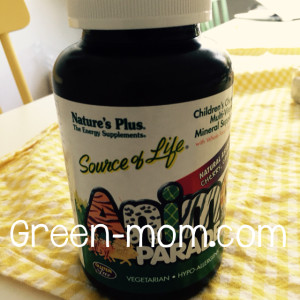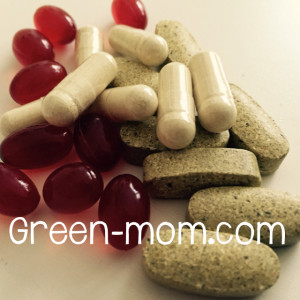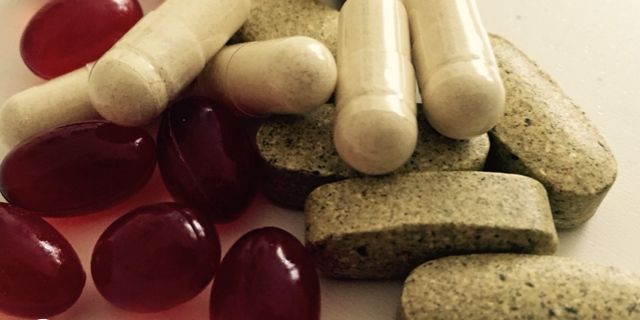By Dawna Matthews:
As children, we often were told to take our vitamins. I trusted that these little cartoon shaped vitamins were filled with goodness for me, and would make me stronger and give me more energy to play each day. As we grow older, we now are advised of multiple ways to add more health to our lives through diet, exercise, sleep and supplemental vitamins. I think supplements are wonderful ways to add wellness to our lives, but how safe are these products? How do we choose the ones that are best for our health?
I used to take for granted that there was nothing harmful on a store’s shelf. I honestly believed that whatever was  available to purchase was exactly what they said it was and that I didn’t need to look further to determine the truth. Over the years, I have educated myself on the purity, concentration and safety of many supplements available today, and have been surprised by what I discovered. Many of these supposed healthy vitamin supplements available on the market contain flavors, colors, chemicals and additives that can cause serious harm to the body.
available to purchase was exactly what they said it was and that I didn’t need to look further to determine the truth. Over the years, I have educated myself on the purity, concentration and safety of many supplements available today, and have been surprised by what I discovered. Many of these supposed healthy vitamin supplements available on the market contain flavors, colors, chemicals and additives that can cause serious harm to the body.
Supplements are regulated by the U.S. Food and Drug Administration (FDA) but are regulated as a food, not medication. This means the manufacturers of supplements do not need to prove to the FDA the safety and efficacy of the product or to inform consumers about the potential side effects of taking the product. Due to the type of regulations in place, the FDA assumes all supplements are harmless unless proven to be unsafe. Often, the labels of dietary supplements may not match what is inside the bottle or include a full list of all the ingredients inside. Many supplements are comprised of non-food, chemically based items and actually inhibit absorption of the vitamin into the body as well as potentially cause damage such as organ failure and addiction. This does not mean every supplement on the market is “bad” and harmful. We can still use supplements with the intention of improving our health; we just need to take the right ones.
 How do we maintain our health and wellness as well as find the “good” supplements? While nothing can take the place of a healthy whole foods diet, food is not enough to get the recommended levels of nutrients we need. Most nutritional experts and doctors agree we should get as many nutrients and vitamins as possible from our food but that we also need to get supplemental nutrients through vitamins and other supplements. According to the Journal of American Medical Association (JAMA) “Most people do not consume an optimal amount of all vitamins by diet alone. Pending strong evidence of effectiveness from randomized trials, it appears prudent for all adults to take vitamin supplements.” Here are some tips when looking for a supplement:
How do we maintain our health and wellness as well as find the “good” supplements? While nothing can take the place of a healthy whole foods diet, food is not enough to get the recommended levels of nutrients we need. Most nutritional experts and doctors agree we should get as many nutrients and vitamins as possible from our food but that we also need to get supplemental nutrients through vitamins and other supplements. According to the Journal of American Medical Association (JAMA) “Most people do not consume an optimal amount of all vitamins by diet alone. Pending strong evidence of effectiveness from randomized trials, it appears prudent for all adults to take vitamin supplements.” Here are some tips when looking for a supplement:
1- Read the label: Make sure the label includes the name of the supplement, a complete list of active and inactive ingredients, serving size, and the manufacturer’s contact information such as address and phone number. While reviewing the ingredients label, look for how much of each nutrient is in the bottle and make sure it does not exceed the recommended safe intake level. (This can be found this in the “resources below.”) Check that the supplement has been certified by an organization that verifies safety of supplements such as the United States Pharmacopoeial (USP) or NSF International. Also, look for an expiration date and “red flag” ingredients such as sugars, artificial colors, and preservatives.
2- Select supplements with the fewest ingredients you need: The more ingredients, the greater the chance of having multiple harmful effects. If you need Vitamin B, then select a supplement that contains only Vitamin B.
3- Talk to your health care provider before taking any supplement: A well rounded health plan is important, and your health care provider can coordinate with you about what may be beneficial or harmful. Speaking to your doctor is especially necessary if you take medications, as some supplements can interact with both prescription and over the counter medicines, and at times produce side effects on their own. Talk to him/her about the correct dosage for your height and weight, as well as brands they may recommend.
4- Avoid supplements that make claims to cure an illness, improve performance, or be a breakthrough product to change something quickly: These supplements can contain prescription medicine byproducts as well as other dangerous chemicals.
5- Purchase supplements from a reliable source and/or store only: You can and should be able to contact the manufacturer and ask about their product. Also, ask your health savvy friends, health store employees, pharmacists and doctor when shopping for a supplement brand.
6- Take as directed: Follow the directions on the product or use your health care provider’s instructions. Keep a journal of when you take it and how you feel. If you start to notice any side effects, notify your doctor immediately.
We are all looking for ways to add health and well-being to our lives. Some of the ways we can accomplish this is through a balanced diet, good sleep, regular movement of our bodies, and supplements. Many dietary supplements are extremely beneficial in helping obtain the vital nutrients we need as well as preventing illness and promoting wellness. It is important to know all supplements are not created equal. By using the recommendations above, we can find a supplement that adds health and vitality to our lives while minimizing dangerous side effects.
Here are some great resources:
Journal of American Medical Association: http://www.ncbi.nlm.nih.gov/pubmed/12069676
National Center for Complementary and Integrative Health: https://nccih.nih.gov/
US Pharmacopoeial Convention: http://www.usp.org/
Dietary Supplement Label Database: http://www.dsld.nlm.nih.gov/dsld/










